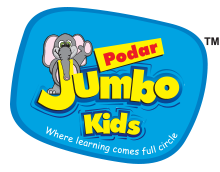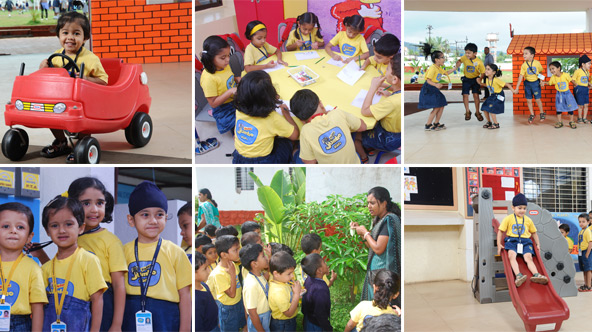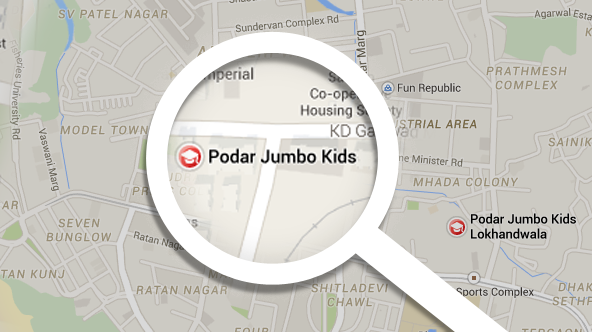KIDUCATION is the core educational belief of Podar Jumbo Kids Early Childhood Centers. KIDUCATION as the name suggests is education from the point of view of the child’s development and so KIDUCATION ensures that the activities and learning that kids are exposed to at their age is relevant, developmentally appropriate, culturally specific and hands on.
To ensure all of the above, the KIDUCATION curriculum has three specific elements
Hand-Head-Heart = Hand-Stimulation, Head-Thinking, Heart-Nurturing
- HAND – STIMULATION – 98% of the brain develops in the first 6 years and thus young kids love to touch everything, in fact they use their 5 senses in learning. To help make brain connections, learning in KIDUCATION is about the basic stimulation involved. Hence, all learning at Jumbo Kids is about sight, sound and touch or experience. So hands-on-stimulation, the first element in the KIDUCATION curriculum translates for teachers and parents into creating opportunities for kids to understand,reason and implement.
- HEAD – THINKING – Why? Is the favourite word of young kids, this is because their neurons are connecting at a break neck speed and curiosity becomes the key to keep these neurons connected. So at KIDUCATION we do not believe that ‘curiosity killed the cat’ in fact we believe that curiosity helps create brighter brains. So we allow kids to question and in fact motivate them to wonder. So while a rote based curriculum will teach kids that the sky is blue, KIDUCATION helps them wonder and understand ‘why’ the sky is blue. For parents and teachers it translates into projects, events and activities, all designed to help kids wonder, question and seek their own answers.
- HEART – NURTURING – The goal of all education is about using knowledge to make the world a better place. When the head thinks, the heart understands and implements. KIDUCATION knows that it is EQ that will make kids successful individuals and so all learning culminates into doing, practicing and creating stress free environments for kids. Teachers and parents partner to understand that children have a strong desire to explore, question and manipulate and nurturing this desire sets the stage for future learning and leads to clarification and understanding-the foundation of lifelong learning.







